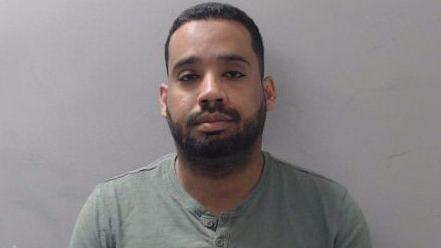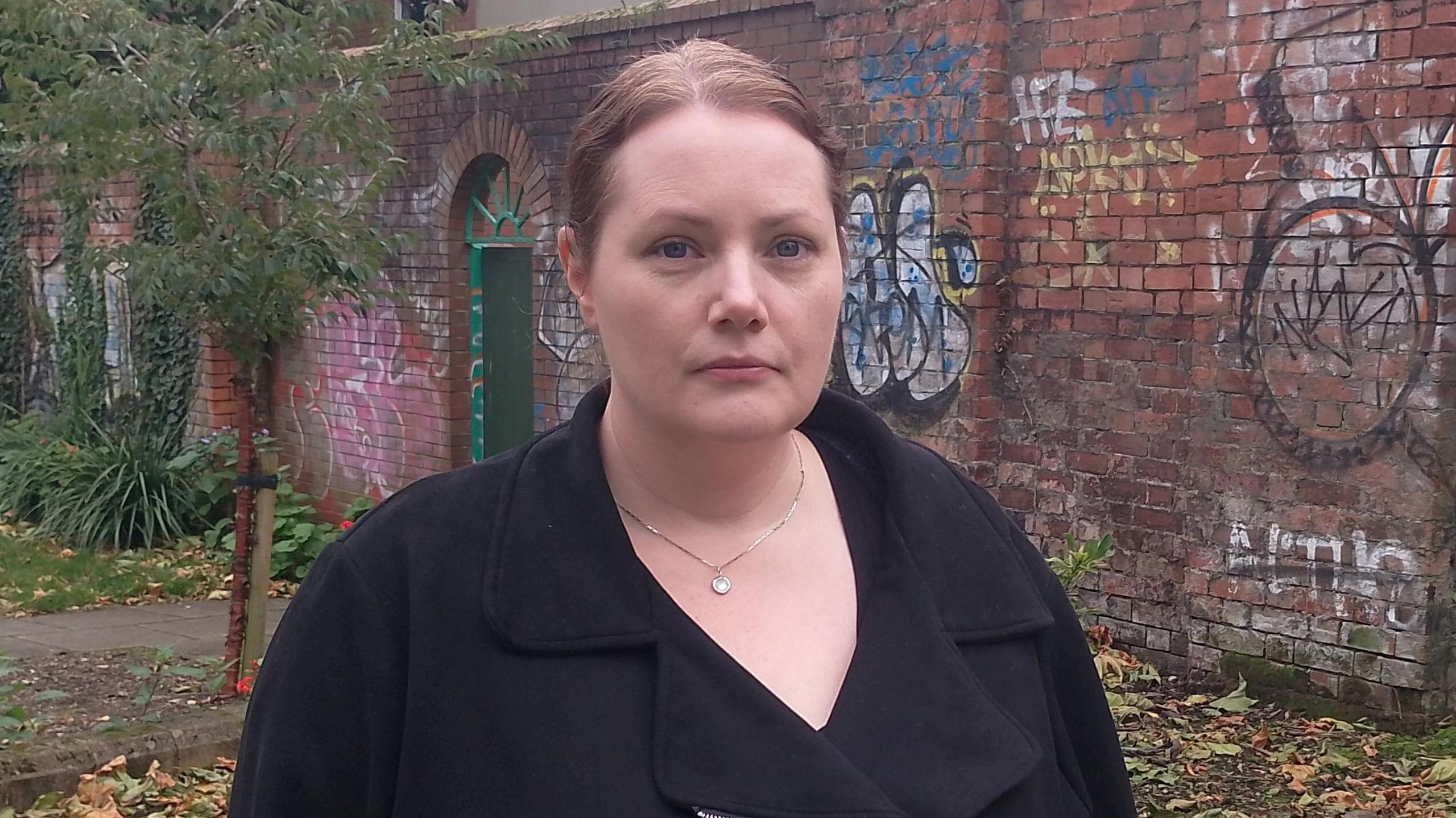Woman 'let down' by police over on-the-run rapist

Ahmed Abashar failed to appear in court but the jury found him guilty in his absence
- Published
A woman raped by a man who has since gone on the run has said she feels "let down" by the police.
Ahmed Abashar, 31, from University Avenue in Belfast, was convicted of rape last month but failed to appear in court. It took the police nearly two weeks to publish his image as part of an appeal for information.
Jane, not her real name, said the lack of action made her feel the police "weren't taking it seriously".
The Police Service of Northern Ireland said sexual crimes were "incredibly complex to investigate" and supporting victims was a priority.
Abashar raped Jane in March 2023 after they met on an online dating site.
A trial commenced on 23 September 2025 and he was convicted in court in his absence on 30 September. A bench warrant was then issued for his arrest.
Jane said his image should have been released by police as soon as he failed to appear, adding that the "sooner you get it out, the sooner everyone can be on the lookout".
"You're giving him a chance to go on a plane and go somewhere because passports are easily got," she told the BBC's The Nolan Show.
'It was just a gut feeling'

Jane spoke to Stephen Nolan for his radio and TV show
Jane said she had warned the authorities that Abashar might go on the run.
"It was just how sneaky he was," she said. "It was just a gut feeling."
She claimed that he was continuing to use dating sites and she had raised this with police.
"My friend said two days ago that he matched with her and she sent me the photo immediately when she saw it," she said.
"He put his real name, surprisingly, and lied about his age - he said he's 35.
"His location showed he's in Belfast, but whether or not it just didn't update… but I'm hoping he's still here."
'Twisted' person
Jane said everything he told her was "lies" and she does not know "who he actually is".
After the rape, Jane said Abashar tried to convince her he was "the only person who was going to be able to help [her]".
"He offered to pay for therapy for me, offered 'support sessions' where we'd meet every week to chat about what he did," she said.
"He tried to say he was the only person who could understand how I was feeling.
She said he felt "no guilt" and was a "twisted" person.
"I shouldn't be living like this and I don't want that to happen to someone else," she added.
She said the trial was "nearly as traumatic as the event".
"What I know now about the whole justice system is, if anything happened to me in the future I wouldn't go to the police about it because of how they've dealt with it."

Elaine Crory says victims often feel "trapped" by a system that doesn't make effort to help them
Elaine Crory from the lobby group, Women's Resource and Development Agency (WRDA), said the claim that Abashar was using dating apps was "terrifying" for his victim.
"It's justifiably terrifying, it is not just an emotional reaction," she told BBC News NI.
Ms Crory said she was not surprised Jane does not feel like she has had full justice, and added a "concerted effort using every possible means" available to agencies should be used to help deliver that.
"A conviction is not all that a person wants, they want some kind of feeling of: 'This person is now going to be kept away from other victims potentially', and also get some sort of rehabilitation so that they aren't doing these things again," she said.
"Without that part of the justice system, it's not really full justice."
The PSNI said it wanted to promote confidence in investigations and ensure victims were supported through the whole criminal justice process.
"Tackling violence against women and girls requires commitment from all - where perpetrators are held to account, and we work with partners to make every space safe."
Listen to the full interview on Nolan Live on BBC One at 22:55 BST or on BBC Sounds.
If you have been affected by any of the issues raised in this story, information and support can be found at the BBC's Action Line website.